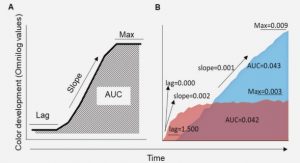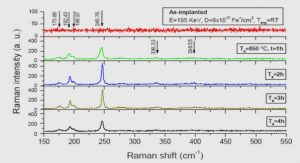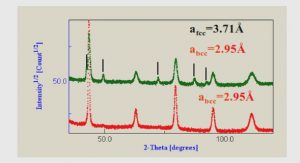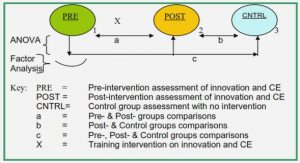Get Complete Project Material File(s) Now! »
Individual Case Report for Participant One
1) Analytic task.
In the first session the participant outlined her main issues. She explained what she felt to be her goals in therapy by identifying the issues that she wanted to explore: “I can’t maintain relationships with my family or with my boyfriends, or my son – [we are] not on good terms”. She also pointed out that she suffers from mood swings, is depressed a lot of the time and finds it difficult to tolerate frustration. “I feel quite down, last weekend I turned off my cell phone, I was sleeping all weekend…I just wanted to be on my own…I was hiding from my friends”. The participant related three incidents whereby she had been let down in her relationships with men: her son’s father had abused her; she was once involved with a man for three months before she discovered that he was due to be married; and in her current relationship she felt that she was unable to trust her boyfriend. Another theme that emerged related to the difficulties she experienced in her relationship with her mother. “My mother [has] never liked me or my sister…she preferred my younger brother”. The participant clearly felt that whilst she does a lot for her mother and assists her financially, she receives little in return. “[When I was in hospital] she did not even come to visit me”. From the outset the participant had identified the main theme that caused her distress. She appeared to have a clear idea of why she had come to see a therapist. These descriptions provided a framework for the analytic task in that it alerted the therapist to those concerns and symptoms that would require exploration. These included: feeling depressed; difficulties with trust following repeated interpersonal rejections and disappointments; feeling uncared for and used.
In session sixteen the participant arrived at the session with some notes that she had written prior to her appointment. These insights were considered to be an important development in terms of the analytic task. She showed insight on some of the issues that had brought her to therapy in the first place. “I am terrified about my son’s behaviour, especially now that I think I am the primary source who contributed to his behavioural problems”. The participant was beginning to see that “I sometimes take my anger out on my son”. A significant shift was reflected in her capacity to move away from seeing the source of all her difficulties as being located outside of herself. She was beginning to move away from a “blaming style” and starting to acknowledge that many of her problems in life were due to her own choices and decisions. “But now it seems this dark cloud won’t move away from me, I feel fully responsible for everything that is happening…I am feeling guilty for everything that is happening to me, I’ve got no one to blame, I am afraid it is going to effect my work performance”. The participant moved to speaking about her relationships with her boyfriends. “I don’t know why but I’m always looking for a fault to fight with [my boyfriend]…why do I let everyone down who is close to me?” furthermore “I really don’t know how to handle my life, how can I be able to help or handle other people if I am going on like this…everyone around me is ending up miserable including myself…my life is quite a mess”. These insights represented a significant achievement in terms of the therapist’s analytic task in that the participant was beginning to take ownership of her projections.
2) Analytic setting.
In session nine the participant stated that she had considered taking an overdose during the past week, but had decided against this as she was on a contract. She had then decided not to keep her appointment with her psychiatrist and to stop taking her antidepressant medication. The therapist was aware that these decisions were counter-productive to her current clinical condition. The therapist was also aware that the participant had agreed at the outset of therapy to continue seeing her psychiatrist regularly to monitor her medication: she had in fact broken this agreement. The therapist pointed this out to the participant and asked her if she thought she had made the best decision for herself. The participant then agreed to discuss the matter with her psychiatrist. Whilst her adherence to her written contract for safety was seen in part as a positive development for the analytic process, her non-adherence to her verbal contract to keep her psychiatric appointments was seen as an attempt to alter the therapeutic frame. This behaviour was understood in terms of the transference. By creating a scenario of non-compliance she was unconsciously attempting to get the therapist to respond in the way she required. If the therapist had rebuked the participant for her non-compliance it is likely that she would have adopted her characteristic position of extremity, felt angry and therefore justified in leaving the relationship. This style of relating was generally evident in all her relationships outside of therapy. The maintenance of a secure therapeutic frame is necessary for the analytic process to unfold. However, for this participant the need for firm parameters to the analytic setting was vital. It was clear that her defences curtailed the expression of her dependant needs; these needs were only likely to be revealed if she were certain that the setting was a safe place in which to do so. It emerged that frame breaks and negotiations were particularly prominent at times when the participant felt most vulnerable. Points of vulnerability were generally marked by break-ups in relationships. At these times she would become very depressed and often suicidal.
In session eighteen the participant was complaining of chest pains, lack of sleep, mood swings, tiredness and headaches. She was taking several forms of medication to control her condition. These include various different antidepressants, benzodiazepines and painkillers. The therapist reminded the participant that the agreement at the outset of therapy was for her to have her medication controlled by her psychiatrist. It was explained that she may well be exacerbating her depressed condition by self-medicating. It was agreed that the participant would bring all her medication to the next session and an appointment would be arranged with her psychiatrist. She appeared satisfied with this arrangement.
3) Analytic process.
In session two the participant started the session by stating that she had not felt well over the past week and that the antidepressant that she was using did not seem to work. “I have taken a number of antidepressants, still none have worked”. The therapist was aware that the participant was unconsciously questioning the usefulness of psychotherapy treatment and was wondering if this process would make her feel better. No interpretation was actively made and the participant proceeded to discuss why she had been feeling so down. After giving an account of her recent argument with her boyfriend she stated that “I am worried about my behaviour with my boyfriend, I feel I may chase him away as I am always suspicious of him…this might destroy the relationship”. After this statement she immediately proceeded to talk about her father, expressing how much he had loved her, and how shocked she had been when she heard of his death. “My problems started then…I felt very alone with no parent…I still think about him a lot”. The therapist noted the connection between the participant’s father and her boyfriend and stated that “perhaps the reason you are so suspicious of your boyfriend is because you believe that he may leave you in the same way that your father left you”. To this the participant replied that one of her past boyfriends had said to her “You are acting like your mother never loved you, you are seeking love like a baby”. In this session the recognition of a strong need to be loved, a fear of abandonment and an acknowledgement of the link between past disturbances and current relational difficulties was established. These insights provided a basis for a way of working that was considered useful for the unfolding of the analytic process. The therapist was also aware that the statement made by the participant’s boyfriend was astute in so far as he recognised that it was the lack of love from the participant’s mother, which was a central issue for her. Her idealisation of her father acted as a compensation for the neglect she had experienced in her relationship with her mother. In session three the participant consolidated her insights by stating “My father left me and I am scared that my partners will leave also…this is why I don’t give everything of myself [in my relationships]”.
In session nine the participant spoke of arranging a family gathering with traditional beer and the slaughtering of a sheep. She said that this was her effort to make peace with her family in spite of the fact that she had many feelings “boiling inside”. More importantly it was an attempt to reestablish a connection with her mother, “She kicked me out eighteen years ago…I want to make peace with her”. The participant pointed out that prior to commencing therapy she had not spoken to her mother for one year. In the session she spoke extensively about the lack of support that she had received from her mother and her mother’s family during her life. She stated that she had received more support from her father and his family. At this traditional gathering she would invite both her mother’s family and her father’s family. In terms of the analytic process two concerns were raised. Firstly, the tremendous need to secure some form of acceptance from her mother, secondly, an attempt to bring together and consolidate elements of her internal object world which was split between the concept of bad mother and good father.
CHAPTER ONE: Introduction
CHAPTER TWO: Theoretical Orientation
Psychoanalytic Psychotherapy
2.1 Definition of Psychoanalytic Psychotherapy
2.2 The Psychoanalytic Procedure
2.3 The Analytic Event
2.4 The Analytic Attitude
2.5 The Analytic Technique
2.5.1 The Analytic Task
2.5.2 The Analytic Setting
2.5.3 The Analytic Proces
2.5.4 Critique of the ‘Analytic Attitude’ as described by Ivey (1999) Psychoanalytic Developments
2.6 The Evolution of Psychoanalysis
2.7 Historical Developments
2.8 The Movement Towards a Constructivist/Relational Perspective
2.9 Contemporary Developments in Psychoanalysis: Conceptual, Clinical and Technical
2.10 Adaptability of Psychoanalysis to Non-Western Cultural Groups
2.11 Summary /
CHAPTER THREE: Cross Cultural Psychotherapy Culture and Psychological Treatment
3.1 Psychological Treatment Approaches and Culture
3.2 Defining Culture
3.3 Western Culture and the Foundation of the Western Self
3.3.1 Dualism
3.3.2 The Influence of Dualism on Western Psychology
Cultural Foundations of the Self
3.4 Understanding the Concept of Self
3.4.1 The Familial Self
3.4.2 The Individualised Self
3.4.3 The Spiritual Self
3.4.4 The Expanding Self
3.4.5 Changing Conceptions of Self in Western Society
3.5 Structure of Self in Traditional African Society
Interpretation of Psychological Meanings across Culture
3.6 Theoretical Approaches
3.6.1 Theoretical Approaches to Language
3.6.2 Universalis
3.6.3 Relativism
3.7 Psychoanalysis: Universalism vs. Relativism
3.8 Psychoanalytic Universals to Reconsider in Cross-Cultul Settings
3.9 Indigenous Theories of Illness: Causation & Cure
Cross-Cultural Psychotherapy in Africa and South Africa
3.10 Cross-Cultural Psychotherapy in Africa
3.11 Adaptations of Psychoanalytic Concepts for Treatment and Research in Sou
Africa and Other Non-Western Cultures /
3.12 Psychoanalytic Psychotherapy in the South African Context /
3.13 Interracial and Cross-Cultural Concerns in the Practice of Psychotherapy i
South Africa
3.14 Summary
CHAPTER FOUR: Research Methodology
Research Methods in Psychology
4.1 Quantitative and Qualitative Research Methods
4.1.1 Quantitative Traditions
4.1.2 Qualitative Traditions
4.2 The Research Study
4.3 Choosing a Research Method
4.4 The Case Study Method
4.4.1 The Case Study Method in Clinical Psychoanalysis
4.4.2 Advantages and Disadvantages of using a Case Study Method
4.4.3 Applicability of the Case-Based Approach to Psychotherapy Research
Research Design
4.5 The Case Study Design
4.6 Case Study Procedure
4.7 Efforts to ensure Accountability and Legitimacy in this Stud
CHAPTER FIVE: Data Collection
Case History One, Two and Three
5.1 Case History One
5.2 Case History Two
5.3 Case History Three
Individual Case Reports One, Two and Three
5.4 Individual Case Report for Participant One
5.5 Individual Case Report for Participant Two
5.6 Individual Case Report for Participant Three
CHAPTER SIX: Cross Case Analysis
CHAPTER SEVEN: Discussion
REFERENCES
APPENDICES
GET THE COMPLETE PROJECT
Psychoanalytic Psychotherapy and the Analytic Attitude: A Cross-Cultural Case Study Approach






